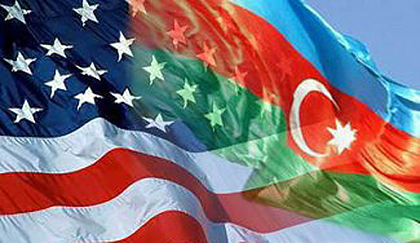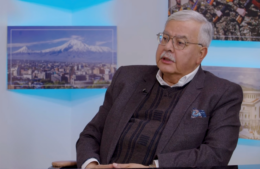Inside Azerbaijan’s Bizarre U.S. Lobbying Push
- (0)
\n
Inside Azerbaijan’s Bizarre U.S. Lobbying Push –
\n
By Rosie Gray –
\n
BuzzFeed –
\n
\n
\n
\n
Why has Baku teamed up with the Gulenist movement to win the hearts and minds of small-time US lawmakers?
\n
\n
WASHINGTON — Azerbaijan has launched an unusual campaign to win influence among U.S. lawmakers, teaming up with a Turkish guru in exile and the sister of Texas Gov. Rick Perry, as it seeks to translate its immense oil wealth into political support.
\n
Since early 2013, state legislators in 17 states have introduced resolutions or memorials relating to the former Soviet Republic. Most are general statements of support or recognition of the 1992 Khojaly massacre, one of the most violent and controversial incidents in Azerbaijan’s war with neighboring Armenia.
\n
What the initiatives had in common was they nearly all had at least one sponsor whoattended a conference in the capital Baku in May 2013 organized by the Turquoise Council for Americans and Eurasians. The council is a Houston-based group connected to Fethullah Gulen, the leader of the moderate Islamist Hizmet movement who fled Turkey in 1999 after clashing with secular Turkish authorities who accused him of trying to turn Turkey into a religious Islamist state.
\n
The initiatives — brought in Utah, New Mexico, Tennessee, Kansas, South Dakota, Missouri, Arkansas, Indiana, Oklahoma, Texas, Arizona, Pennsylvania, Mississippi, Illinois, West Virginia, Wyoming, and Hawaii — play well domestically in Azerbaijan, a country run by a regime accused of corruption and widespread human rights abuses, even if not all of them were passed.
\n
The president of Azerbaijan, Ilham Aliyev, has so far mostly avoided the international scrutiny and criticism afforded to similar human rights abusers. This month, the country assumed the chairmanship of the committee of ministers of the Council of Europe, Europe’s leading human rights body, amid a renewed crackdown on opposition activists. Last month alone it sentenced eight youth activists to six to eight years in prison and is currently trying five people who criticized the government on Facebook, according to Human Rights Watch.
\n
In an effort to improve this image, Azerbaijan has become one of the top 10 foreign spenders on lobbying in the United States, spending $2.3 million last year,according to the Sunlight Foundation.
\n
Azerbaijan lobbies in the U.S. through three main conduits: its embassy; a fairly new group called the Azerbaijan America Alliance; and its state oil company SOCAR, which has opened an office in Washington.
\n
The Azerbaijan America Alliance, which helped finance a Flight 93 memorial in Pennsylvania in 2013, is run by Anar Mammadov, the son of Azerbaijan’s Transport Minister Ziya Mammadov. He is perhaps best known for once allegedly paying a restaurant in the Gabala region of Azerbaijan $1 million to slaughter and grill a bear for him.
Experts say these organizations are often the work of the offspring of the Azeri elite. “There is a phenomenon of the children of oligarchs acting as lobbyists abroad,” said Tom de Waal, a South Caucasus expert at the Carnegie Endowment for International Peace.
\n
“They have these very posh gala dinners,” said one Azerbaijan expert who spoke on the condition of anonymity. The Alliance is “one way that [Mammadov] is making his family more important to the regime.”
Then there is SOCAR, which has hired the Washington firm Roberti + White and is listed as a partner in the Houston groups that have done much of the outreach to state legislators. The May trip to Baku, which also included members of Congress and former Obama administration officials, appears to have been key. A report by the only U.S. journalist to attend the trip (whose visit was also paid for) said lawmakers “jostled for pictures” in Azerbaijan’s parliament, which is overwhelmingly dominated by Azerbaijan’s ruling party, went sightseeing in Baku, “showered their hosts with praise” at a visit to a university, and were interviewed relentlessly by Azerbaijani TV reporters. The trip’s attendees reportedly each received a “hand-woven Azeri carpet, an executive briefcase and a set of Czech-made tea glasses.” Several of them spoke at the conference that culminated the trip, as did David Plouffe and Robert Gibbs, former top Obama administration officials, and Jim Messina, President Obama’s 2012 campaign manager.
Sometimes the link between the Azeris and the resolutions was even more direct. In Tennessee, Representative Joe Towns, who was invited to attend the 2013 trips, introduced an Azerbaijan-related bill this year. Local media noticed that he had received $10,000 in campaign donations from a a handful of people in Houston, Texas who are members of the Azeri and Turkish communities there. Towns denied that the contributions had inspired him to write the resolution.
\n
The Turquoise Council, headed by a Gulenist follower named Kemal Oksuz, paid for the travel of lawmakers who went on the trip, according to congressional records. Oksuz also chairs the Assembly for the Friends of Azerbaijan (AFAZ), a Houston group sponsored by SOCAR, which hosted a U.S.-Azerbaijan convention in Washington at the end of April attended by many of the same lawmakers who went on the trip to Baku, as well as other members of Congress and former administration officials. The Assembly’s vice president is Milla Perry Jones, the sister of Texas Gov. Rick Perry, and its treasurer is Rauf Mammadov, the chief of SOCAR’s U.S. branch. Oksuz also owned TDM Contracting, a construction firm in Texas that worked to build a network of Gulenist charter schools there. (Reached by phone, Jones said her position with AFAZ was “ceremonial” and unpaid and that she had become involved with the group after traveling to Azerbaijan. Jones said she had “no idea” who is a member of the organization.)
\n
Oksuz has has donated directly to several of the members involved in the trip as well as other politicians and party committees. Oksuz denied there was any anything improper in his relationship with Towns or any other lawmaker. He told BuzzFeed that the Turquoise Council organizes trips to Turkey, Azerbaijan, and Kazakhstan to provide an opportunity to “meet there with the government officials, civic society leaders, U.S. Embassy staff, and people from public” and “get briefing about the relations. So that they learn more about the country and its relations with the U.S.”
\n
\n

\n
Police detain an opposition supporter in Baku, October 12, 2013. David Mdzinarishvili / Reuters
\n
\n
\n
Nevertheless, the Baku trip raised eyebrows in some places. In Hawaii, local media questioned why two state legislators introduced a pro-Azerbaijan resolution after going on the trip, and in Washington state, concerns were raised about ethics violations.
\n
Most of the lawmakers contacted for this article either declined to comment or did not return a request for comment.
\n
New Mexico State Sen. Jerry Ortiz y Pino told BuzzFeed that he introduced a Khojaly memorial at the request of the Turkish community and the “honorary Azeri consul” in Albuquerque. He said he and a delegation of New Mexico legislators had visited Azerbaijan in 2012.
\n
“Many New Mexico legislators (me among them) have traveled in the past five years to Turkey for meetings with Turkish legislators and to Azerbaijan for meetings with Azeri officials and legislators,” Ortiz y Pino said. “We have also hosted a delegation of Turkish elected officials during their visit to the U.S. a couple of years ago. The Azeri government is keen to repair its image in the U.S. press and has undertaken a strong initiative among state legislators to impress us with how supportive they are of the U.S. government and its people.”
\n
Azerbaijan, a secular majority Muslim country, has sought to lean westward since the fall of the Soviet Union, developing a burgeoning defense partnership with Israel and adopting a wary stance toward Iran. The U.S. has bilateral ties with Azerbaijan and supported the Baku-Tbilisi-Ceyhan pipeline as an alternative to Russian and Iranian energy; a statement by Secretary of State John Kerry on Azerbaijan’s National Day noted the two countries’ “commitment to diversifying energy supplies and promoting regional security.”
\n
Ortiz y Pino acknowledged that many were confused about his initiative. “To be honest, our memorial was met with mostly blank stares by most legislators who haven’s [sic] visited Azerbaijan. The issue didn’t generate a great deal of comment or questions and passed unanimously, I believe.”
\n
Wyoming state Rep. Dave Zwonitzer said he and four other Wyoming lawmakers were contacted in 2013 by the Gulenist group the Mosaic Foundation, which offered the free trip to Baku. On the trip, he said, were “four buses full of legislators” from around the country. Zwonitzer said that though he personally was not directly encouraged to introduce a resolution, “I did get the impression from other legislators I talked to that they had been encouraged.” He said that it was “never clear to us” who exactly was paying for the trip, “which was a little disconcerting.”
\n
Zwonitzer and his colleagues introduced their resolution based on model legislation provided to them by the Mosaic Foundation, though they changed one sentence, he said. It failed to pass, but they plan to reintroduce something similar in the 2015 legislative session.
\n
“You don’t get a free 10-day trip sponsored by the oil company without somebody asking for something,” Zwonitzer said.
\n
Experts say the Azeris are looking to both compete with the Armenian lobby in the U.S. and also show their bosses back home they are simply accomplishing something. “In part they’re taking their cues from things the Armenian-American groups have done in California where they’ve gotten cities or state governments to pass similar kinds of resolutions on behalf of Armenia and Nagorno-Karabakh,” said former U.S. Ambassador to Azerbaijan Richard Kauzlarich. Nagorno-Karabkh remains disputed between the two countries, and experts have warned for years that conflict could again break out over the territory.
\n
“On a state level [the lobbying] is useless, but mostly it is for domestic consumption,” said Elmar Chakhtakhtinski, the president of Azerbaijani Americans for Democracy, a U.S.-based opposition group. “They’re trying to please [Aliyev], they’re trying to do something.”
\n
This is all happening as Azerbaijan has drawn sharp criticism worldwide for its treatment of its people. The Council of Europe criticized Azerbaijan earlier in May as the country was assuming its chairmanship of the ministerial committee, sayingthat the situation there “is a more than worrying state of affairs for a member state taking up the chairmanship of the Committee of Ministers.”
U.S. Ambassador to Azerbaijan Richard Morningstar also publicly rebuked the country during his speech at the U.S.-Azerbaijan Convention in April in Washington, which was co-sponsored by SOCAR and organized by the Assembly of the Friends of Azerbaijan and featured many of the same lawmakers who had traveled to Baku.
“The elephant in the room regarding our relationship is in the area of democracy and human rights,” Morningstar said. “We seem to talk past each other. We are who we are and hold strong democratic values. When we see what we think are abuses we speak out.”
\n
\n




















